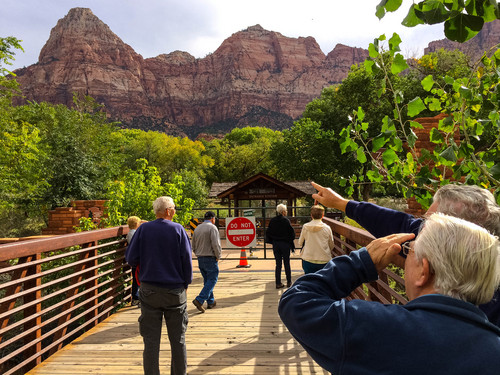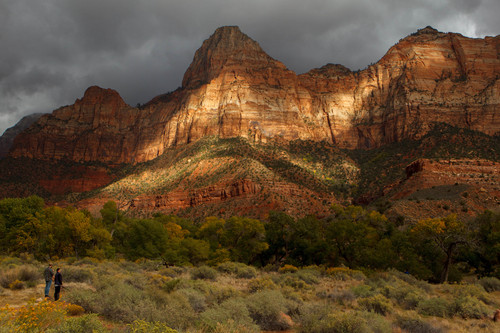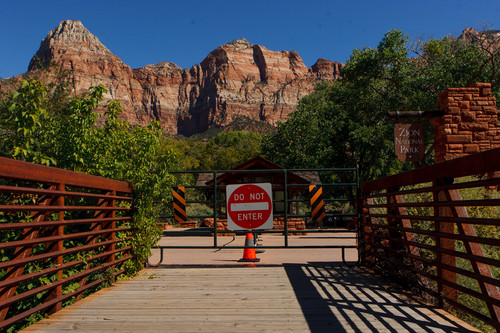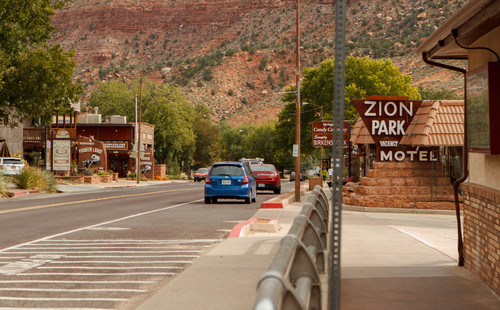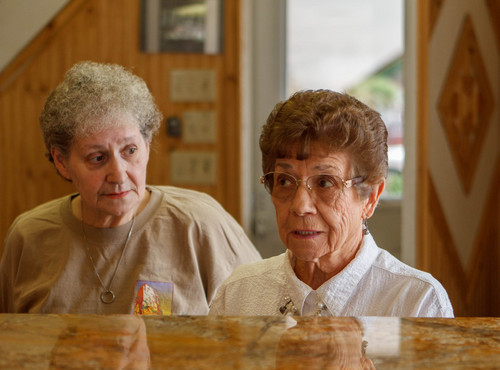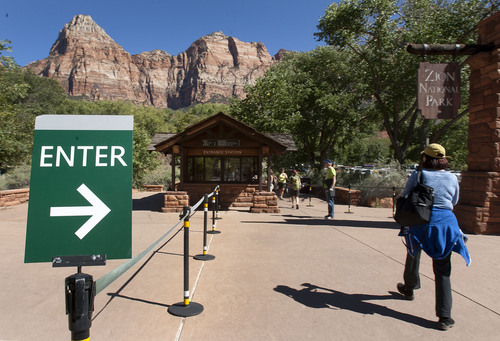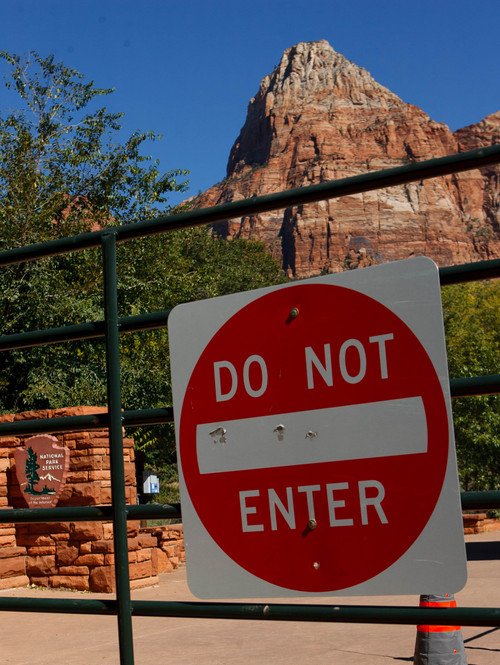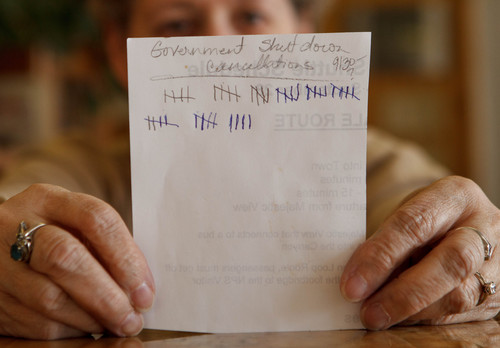This is an archived article that was published on sltrib.com in 2013, and information in the article may be outdated. It is provided only for personal research purposes and may not be reprinted.
The government shutdown destroyed millions of dollars of revenue in southern Utah, and it's up to Utah politicians to make sure it doesn't happen again.
Or at least, that was the message delivered Wednesday by southern Utah officials to a state commission meeting in Salt Lake City. The officials included representatives from Garfield, Washington, Piute and San Juan counties, all of whom were clear that the shutdown cost Utah tax revenue and may have damaged the state's tourist economy.
Their solution: having Utah assume control of federal lands so people aren't locked out again.
"We literally had people breaking down emotionally because they couldn't get into the parks," Garfield County Commissioner Leland Pollock said at Wednesday's meeting.
According to Pollock, 70 percent of the tax revenue and 41.9 percent of the jobs in Garfield County comes from tourism. During the shutdown that revenue dried up, which Pollock described as "catastrophic" for the region.
State economists have said the shutdown cost Utah's tourism industry about $30 million.
Pollock also said the shutdown was merely the latest problem to come from federal control of Utah lands. He explained that North America's largest coal reserve is located in Grand Staircase-Escalante National Monument, but it can't be reached or developed — something Pollock would like to see happen — because the area is owned by the federal government.
Other leaders also lamented the problems with federal control of Utah land, as exemplified by the government shutdown. Washington County Commissioner Alan Gardner said sheriff's deputies were going to break the locks barring access to the national parks during the shutdown, but abandoned the plan when federal officials indicated they would file criminal charges against the deputies.
Instead, the county lost money until Gov. Gary Herbert spearheaded a plan to re-open the parks with state funds.
Gardner added that 32.8 percent of the jobs in Kane County and 21.7 percent of the jobs in Washington County depend on tourism. About 3 million people visit Zion National Park each year, Gardner said, which translates to about 10,000 people per day. That generates about $40 million a year in tax revenue for Washington County alone, Gardner argued.
"The only solution is transferring the lands to the state," he added.
Gardner and Pollock both pointed to HB148, from the 2012 legislative session, as the type of solution that helps their counties. The bill, signed by Herbert, demanded the federal government turn over Utah lands to the state.
Other officials delivered a similar message Wednesday. Uintah County Commissioner Michael McKee said the shutdown forced the closure of oil wells, cutting revenue by hundreds of millions of dollars. And Kelly Pearson, a representative from San Juan County, said hotels and restaurants emptied out during the shutdown.
Jean Seiler, a representative of Ruby's Inn in Garfield County, also attended the meeting and said the shutdown cost his business about $500,000 in direct business as well as up to $300,000 in indirect business.
"Our fall season has really dramatically changed," he said.
Seiler also said Ruby's Inn, wanting to be helpful, put police tape up to help bar access to the parks. However, days later Seiler returned and saw that the tape had been replaced by barbed wire. The extreme attempt to keep people out of the park surprised Seiler, who added Wednesday that international tourists could lose confidence in the parks if the shutdown repeated.
jdalrymple @sltrib.com
Twitter: @jimmycdii


